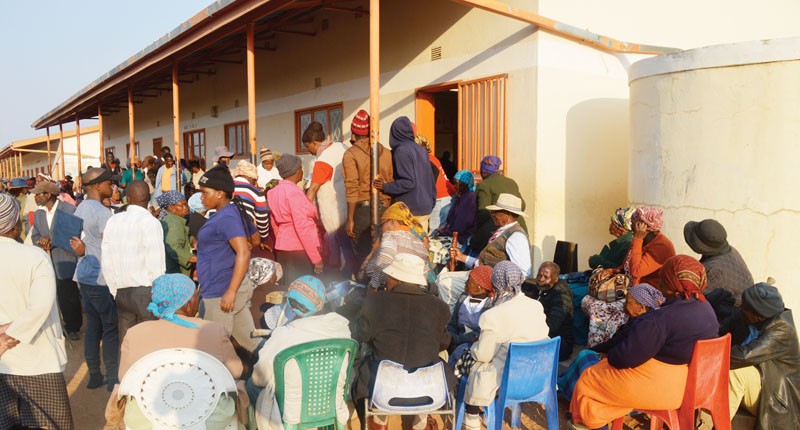No Royalties For Ditlhopho Di Tsile Hit Election Song
Innocent Selatlhwa | Monday September 16, 2019 11:15


Before then, Botswana will on October 23 elect new leadership. And one guessed right, the 2003 hit track ‘Ditlhopho di tsile’ by Joe Morris sets the mood right.
It encourages multitudes to participate in electing their desired leadership. Despite this magnificent role the song plays, the composer Joe Morris has little to show for it.
The song, commissioned by the Independent Electoral Commission (IEC) and sung by Joe Morris with backing vocals by Nnunu Ramogotsi, Punah Gabasiane and Nono Seile, continues to play on Radio Botswana (RB) and Btv.
Even though Morris could only divulge that he got paid back in 2003 after the initial version and got another payment when he remade the song in 2008, a close source said Joe Morris pocketed only P8, 000 for his efforts.
Looking at the frequency of the song being played on especially RB and Btv, one would assume Morris is at least getting more money as royalties from the Copyright Society of Botswana (COSBOTS). It is however to the contrary with Joe Morris taking the blame.
“I have not received any royalties and that is because I have not registered with COSBOTS.
I wanted to do that recently and I had to wait because I need authority from the company that was contracted by IEC and approached me to do the song. The director is still out of the country and as soon as he gets back I will do the right thing,” he said. COSBOTS was commissioned and became fully operational in November 2011. In 2012 the registration of members together with licensing of users began leading to the first distribution of royalties in 2014.
In 2014 during with Joe Morris having joined the Botswana Congress Party (BCP) and released “Fetolang Puso”, a partisan song in which he slams the Botswana Democratic Party rule under Ian Khama.
He was amongst bitter Batswana who were retrenched from BOTEC in 2013, so why not attack the government of the day through what he knows best?
Joe Morris urged voters to restore Botswana to its democratic promise by voting for BCP during that year’s general elections. Morris and his back-up vocalists lyrically lamented unemployment, corruption and autocracy and urged the youth to vote for the BCP to change such status quo.
He believes it is because of the BCP song that the Khama administration made it a point that the song was never played during 2014 elections cycle.
The song is now back enjoying airplay on a daily basis at the mass media complex.
